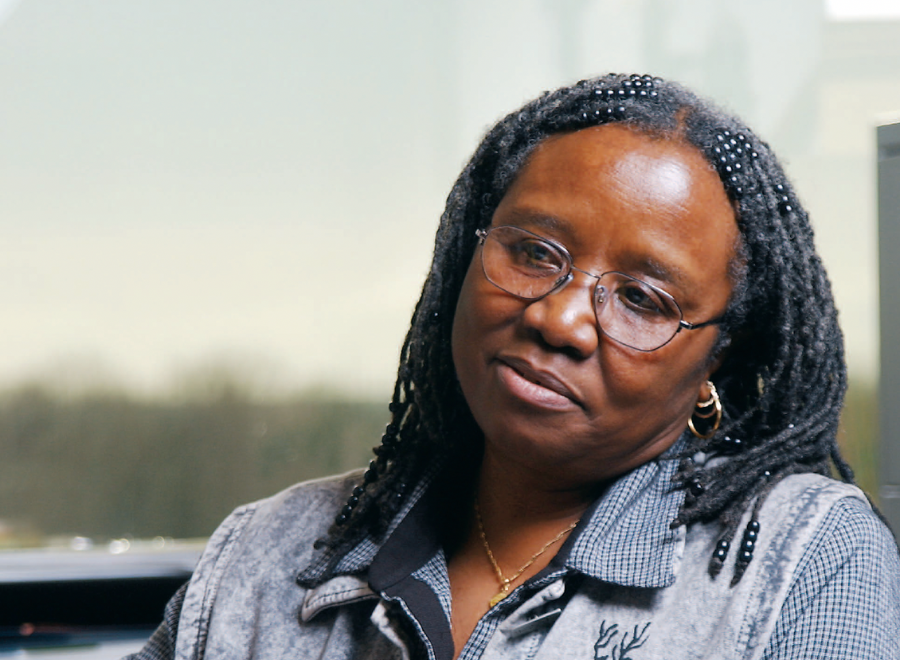Senior General Council official Omega Bula believes we are all complicit in an unjust empire. She talks to Kevin Spurgaitis about living faithfully in the new global order.
KEVIN SPURGAITIS: You have defined “empire” as a system of global domination run by nations, economic institutions and corporations. You’e also stated that ordinary people participate in empire through “their role as consumers.” To what extent are Canadians, and, more specifically, United Church members, complicit?
You may unsubscribe from any of our newsletters at any time.
OMEGA BULA: Well, I wouldn’t say all United Church members are aware of their participation in empire. Still, each and every one of us buys, sells and consumes. We each greatly contribute to this neo-liberal market economy, which, in turn, is one of the main factors behind all the world’s ills: child poverty, environmental degradation, militarism, human rights violations, repression of aboriginal people, patriarchy and the pervasiveness of Western culture. This market economy drives multinationals that are extracting natural resources from developing countries with impunity, leaving little for the local people. This is the empire we are speaking about.
KS: Can you give me an example of the ill-effects of the market economy?
OB: Water — a natural resource for the common good — is being tapped and privatized. It’s now a product, much like Coca-Cola and sugar. As a result, we’re seeing reduced water tables and restricted access to drinking supplies, which is affecting the health and well-being of people in places like India and South Africa. Without vigilance, a natural resource like water can easily be privatized and have implications for life.
KS: Why should United Church members confess their complicity in this economy?
OB: It is recognition that the system is amiss and broken. We need to think hard about our individual choices so we can begin to make transformative changes in society. We need to discuss a life-giving economy that focuses on life for people and the Earth.
KS: In the report you presented to General Council last August, “Living Faithfully in the Midst of Empire,” you describe the U.S. as a modern-day imperialist because it has violated international law and maintains hundreds of military bases around the world. Are you equating America and its allies to the Roman Empire?
OB: Yes. But it’s not about the American people; it’s about the current U.S. administration, its policies of dominance and increasingly aggressive nature toward the rest of the world. It’s a fair comparison to the practices of the Roman Empire, which Jesus resisted.
KS: Some countries, Brazil, Venezuela and Bolivia, have chosen new governments and opted for economic policies that oppose U.S. dominance. Is this a good thing?
OB: It’s a positive thing that people in the Global South are beginning to make their own choices. But these countries are not islands. We need to accompany our brothers and sisters who are struggling to overcome a long history of Western domination and exploitation.
KS: Some would argue that the global market economy helps developing nations “catch up” to industrialized nations; after all, it has created millions of jobs in the developing world and affordable goods for Western consumers. What do you think?
OB: Economic integration can be a good thing if it can be done in a just way, taking into account local systems and people. However, it is not doing that. It’s not bringing everyone on board. And viewing this as a matter of helping poorer nations “catch up” is just another neo-colonial way of looking at things. It’s assuming that the way of life in the North — in rich countries — is what everyone wants.
KS: Is this a theological or political issue?
OB: Both. We cannot be church without participating in the political realm. We cannot struggle for justice any other way. As a United Church member living out the Gospel, you can give back a little bit through charity, or you can respond on a greater scale by actually helping to change the current system, so that the poorest people may have life and have it abundantly.
KS: Critics say your report is loaded with political ideology and oversimplifies complex issues in today’s world. How do you respond?
OB: It’s going to be a long educational process for folks who have enjoyed privilege and taken certain things for granted. These people ask, “What’s wrong with this system and what else do you want us do to?” They say, “Unless you can put an alternative on the table, then don’t condemn what we have.” They assume we are speaking for socialism and communism and that is incorrect. The fact is that one system, communism, has openly failed and now we have the dominance of the current neo-liberal system, which isn’t working for two-thirds of the world.
Why can’t we speak about an alternative to that system? Let’s struggle together for a system that works for all, not just for a few.
KS: Will this empire, as you understand it, ever be overthrown?
OB: It would be naïve to think we can overthrow the present-day empire. But we can impact if we stand up to it and protest. This has worked before in recent history.
***
This story first appeared in The United Church Observer’s April 2007 issue with the title “‘It would be naïve to think we can overthrow the present-day empire. But we can protest.’”













